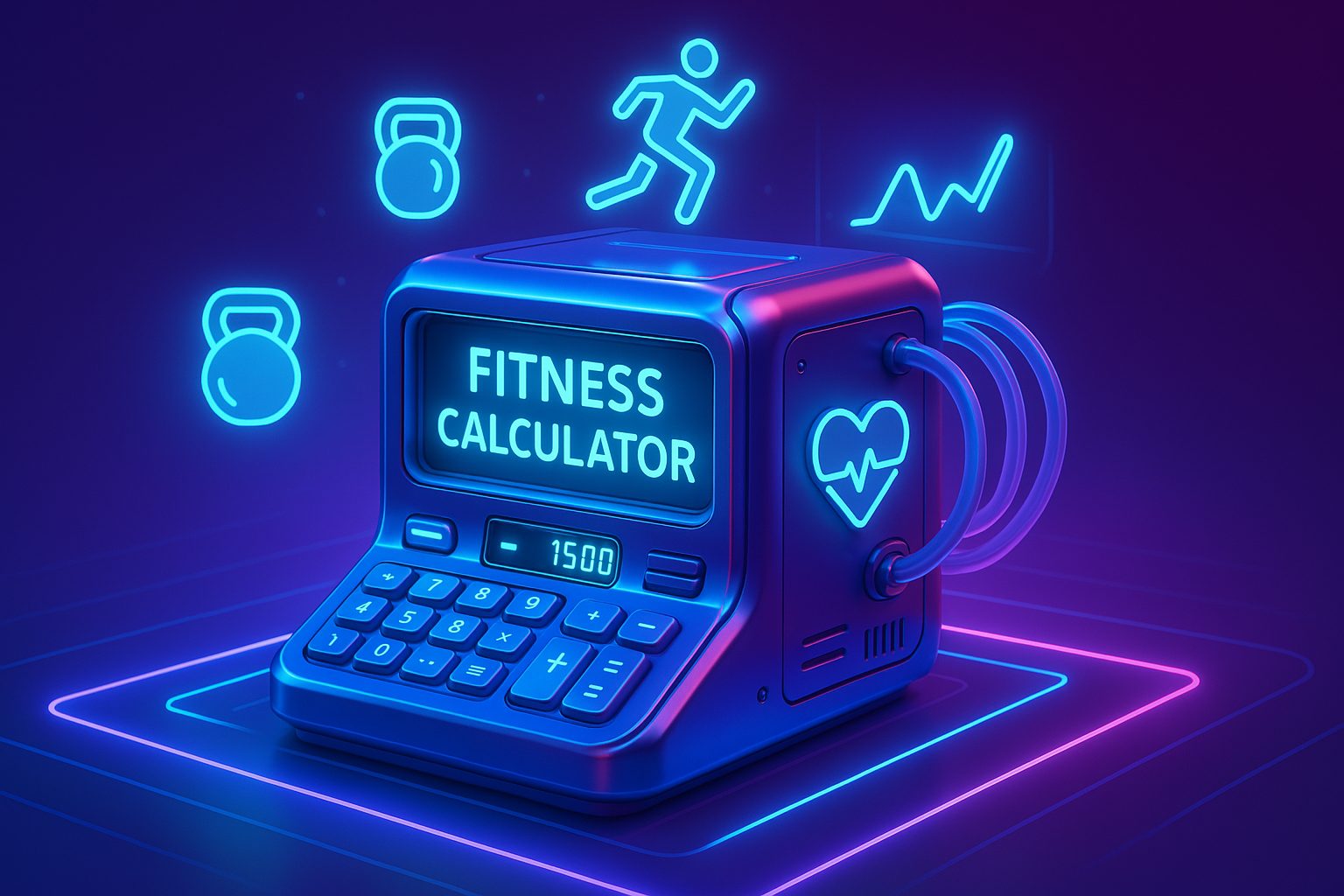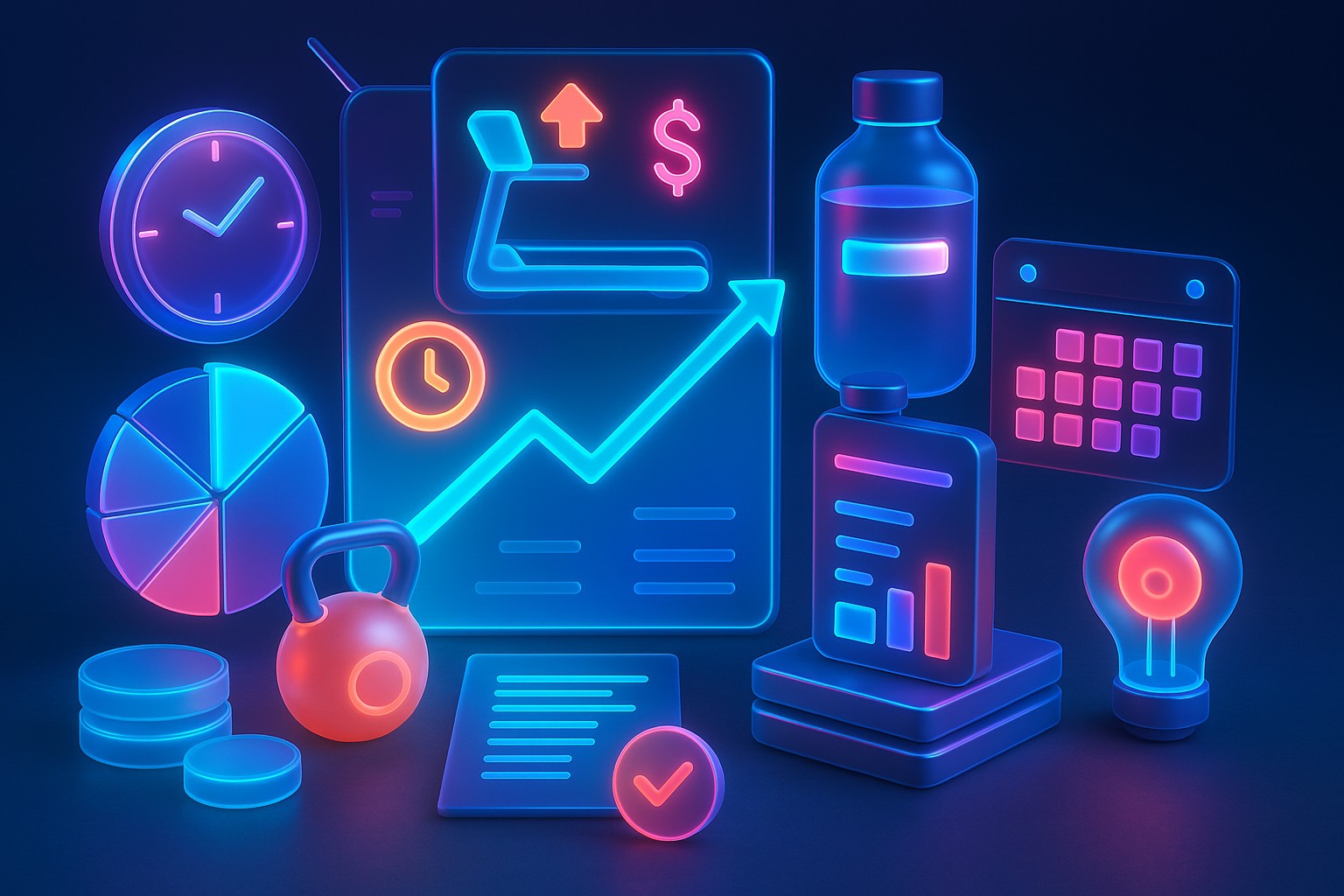Unveiling the Power of Precision: How Fitness Calculators Can Revolutionize Your Workouts
In today’s fast-paced world, staying fit is no longer just a matter of hitting the gym or going for a run. The key to achieving lasting results lies in how precisely we can measure and track our progress. Whether you’re looking to lose weight, build muscle, or simply improve your overall fitness, knowing the right metrics can make all the difference. Enter fitness calculators—powerful tools that provide the kind of accuracy needed to help you reach your fitness goals with confidence. This ultimate guide will explore the most accurate and reliable fitness calculators that can truly make a difference in your journey. Let’s dive in.
The Need for Accurate Fitness Data
Many people begin their fitness journey without the right tools to track their progress effectively. Sure, you can measure your success based on how you feel or how your clothes fit, but those are subjective measurements. To truly understand your body’s response to your fitness regimen, you need data that tells the full story. Fitness calculators are the bridge between your fitness efforts and measurable results. These tools take the guesswork out of your fitness journey, ensuring you’re working smarter, not harder.
The first step toward success is understanding where you stand. That’s where accurate fitness calculators come in. They provide precise calculations on everything from caloric intake to body fat percentage to metabolic rate. These numbers allow you to make informed decisions about your workouts, nutrition, and overall health. The right calculators give you insight into your body’s needs and help you tailor your fitness approach to achieve your goals faster and more effectively.
Types of Fitness Calculators You Need to Know
When it comes to fitness calculators, there are a variety of tools available, each serving a different purpose. From tracking your daily caloric intake to estimating how many miles you need to run to burn off a meal, fitness calculators provide specialized data that helps guide your efforts.
1. Basal Metabolic Rate (BMR) Calculators
Your Basal Metabolic Rate is the number of calories your body needs to perform essential functions such as breathing, circulation, and digestion. This is the number of calories you would burn if you did nothing all day. Knowing your BMR is crucial because it provides a baseline for calculating how many calories you should consume to lose, maintain, or gain weight.
2. Body Mass Index (BMI) Calculators
BMI is a measure of body fat based on height and weight. Although it’s a widely used metric, it doesn’t account for muscle mass, which means someone with a lot of muscle may be classified as overweight. Nonetheless, it’s still a good starting point to assess overall health and risk factors.
3. Body Fat Percentage Calculators
Unlike BMI, body fat percentage calculators give a more accurate picture of your fitness level by assessing how much of your weight is made up of fat compared to lean mass. Achieving a healthy body fat percentage can help you avoid the risks associated with high body fat, such as heart disease and diabetes.
4. Macronutrient Calculators
These calculators break down your daily calorie intake into macronutrients: protein, carbohydrates, and fats. By entering your goals—whether it’s to lose weight, gain muscle, or maintain—these tools will provide you with a specific macronutrient breakdown that fits your needs. Properly balancing your macronutrients is essential for maximizing energy and performance during workouts.
5. TDEE (Total Daily Energy Expenditure) Calculators
Your TDEE accounts for all the calories you burn in a day, including those burned through physical activity. Understanding your TDEE helps you determine how many calories you should consume based on whether you want to lose fat, build muscle, or simply maintain your weight. TDEE calculators factor in your BMR along with activity levels for more precise results.
How Fitness Calculators Empower Your Goals
With the variety of calculators available, how do they actually empower your fitness journey? The answer lies in personalization and accuracy. Here’s how these tools can help you get the results you want:
Tailored Nutrition Plans: Fitness calculators provide you with personalized data that helps you create a nutrition plan suited to your body’s unique needs. Whether you’re focused on weight loss or muscle gain, these calculators break down exactly how much of each macronutrient you should consume to reach your goal.
Optimized Workouts: By understanding your TDEE, BMR, and body fat percentage, you can design workouts that complement your nutritional intake. The result is a more balanced, efficient fitness plan that works with your body’s natural rhythm.
Tracking Progress: Fitness calculators help you track your progress by providing accurate metrics. Instead of guessing how much progress you’ve made, you have concrete data to measure your success.
Avoiding Plateaus: By regularly updating your calculations based on your changing body composition, you can avoid hitting a plateau in your fitness progress. Adjusting your nutrition and workouts based on real data helps ensure continuous improvement.
Injury Prevention: Understanding the relationship between your body fat, muscle mass, and caloric intake can also help you avoid overtraining, which can lead to injuries. Proper nutrition and a balanced workout plan tailored to your needs can keep you stronger and healthier for longer.
The Best Fitness Calculators for Your Goals
With so many fitness calculators out there, how do you know which ones are the best for your specific goals? It all depends on what you’re trying to achieve. Whether you’re looking to lose weight, build muscle, or improve endurance, some calculators are better suited for certain goals.
MyFitnessPal: This app is a great all-around tool for tracking your calories, macronutrients, and daily activity. It’s one of the most popular fitness calculators because it’s easy to use, highly customizable, and integrates with a variety of devices.
Bodybuilding.com’s Macro Calculator: This tool is perfect for those looking to build muscle or gain weight. It takes into account your activity level, goals, and body type to give you an accurate breakdown of your macronutrient needs.
TDEE Calculator: For those who want to track their total daily energy expenditure, this calculator gives you a comprehensive look at how many calories you burn throughout the day, factoring in both exercise and lifestyle habits.
Fitbit: Known for its wearable devices, Fitbit also offers a suite of calculators that track your daily activity, calories burned, and even sleep patterns. Its integration with other fitness tools makes it a popular choice for people looking for a more holistic approach to their health.
Precision Nutrition’s Body Fat Calculator: If you’re serious about tracking your body fat percentage, this calculator is an excellent option. It uses a variety of measurements (such as weight, height, and waist circumference) to give you a more accurate picture of your body composition.
The Future of Fitness Calculators: What’s Next?
The landscape of fitness technology is always evolving. What was cutting-edge just a few years ago can quickly become outdated as new research and technology emerge. So, what’s next for fitness calculators?
We can expect even greater integration of AI and machine learning into fitness tracking tools. These technologies will enable calculators to learn from your data and provide more accurate predictions and recommendations. Imagine a fitness calculator that not only tracks your calories and activity but also offers real-time feedback based on your unique body type and goals. The future of fitness tracking is more personalized than ever.
Additionally, wearables will continue to play a significant role. As fitness trackers become more advanced, they will provide more precise data about everything from your heart rate variability to your oxygen levels, offering even deeper insights into your health and fitness.
Finally, expect more integration between fitness calculators and other health-related tools, such as mental wellness apps and stress management programs. Fitness is no longer just about physical strength—it’s about overall well-being, and the tools we use to track our progress will continue to evolve to reflect this.
The Final Step: A Personalized Approach to Your Fitness Journey
The most accurate fitness calculators can give you all the data you need to tailor your workouts and nutrition. But the true key to success lies in how you use that information. Fitness calculators are incredibly powerful tools, but they’re just one part of the equation. It’s up to you to take that data and apply it in a way that motivates you, keeps you on track, and helps you reach your ultimate fitness goals. By combining the insights from fitness calculators with dedication and consistency, you’ll have everything you need to succeed.




